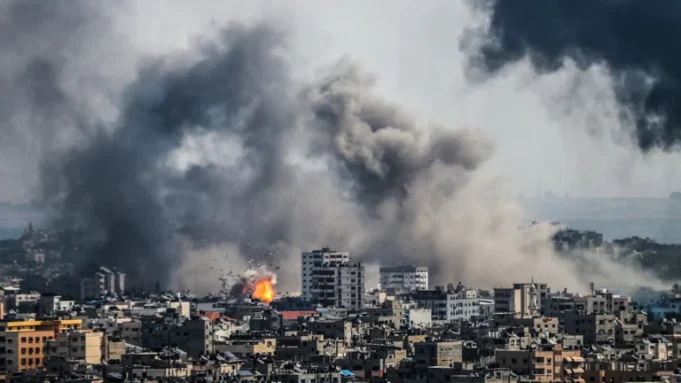Amidst the celebration of Eid al-Fitr holiday marking the end of Ramadan, Israeli airstrikes pounded Gaza on Wednesday, despite criticism from US President Joe Biden regarding Israel’s military tactics.
In Gaza, where the scars of over six months of conflict remain fresh since Hamas’s October 7 attacks, Palestinians gathered for morning prayers amidst the ruins.
 Advertorial
Advertorial
The devastation has left many grappling with loss and displacement.
Meanwhile, at Jerusalem’s Al-Aqsa mosque compound, usually a site of celebration during Eid, worshippers expressed a somber mood. Nurse Rawan Abd described it as the “saddest Eid ever,” with people seeking solace and solidarity amid ongoing turmoil.
Israeli Prime Minister Benjamin Netanyahu remained steadfast in his determination to dismantle Hamas and secure the release of hostages, vowing to press on with military operations despite international mediation efforts.
Biden, voicing frustration with Netanyahu’s approach, issued stern criticism, labeling Israel’s actions as a “mistake” and urging for an immediate ceasefire to facilitate humanitarian aid access.

The conflict, ignited by Hamas’s October 7 assault on Israel, has resulted in significant civilian casualties on both sides.
Innocent lives, including children, have been tragically lost amid the violence.
As the cycle of violence persists, humanitarian concerns mount.
Israel’s blockade on Gaza has exacerbated shortages of essential supplies, with humanitarian groups accusing Israel of exacerbating the crisis through the use of restrictive measures.
Despite recent improvements in aid delivery to Gaza, challenges remain.

Samantha Power, administrator of the US Agency for International Development, highlighted the urgent need for further action to address the dire humanitarian situation in Gaza.
Washington’s re-evaluation of its approach to the conflict, coupled with renewed funding for Palestinian refugees, reflects a growing recognition of the need for comprehensive intervention to alleviate suffering in the region.

















